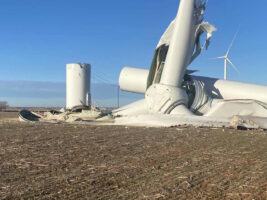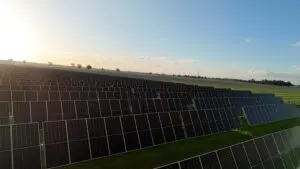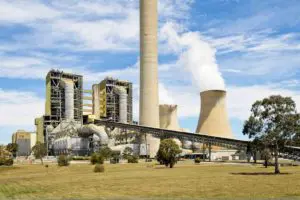Gravity storage start-up Energy Vault says it has begun site planning for what it now describes as a “multi-gigawatt hour” project for long and short term storage to support the green energy plans for Australian zinc refiner Sun Metals.
Energy Vault and Sun Metals sister company Ark Energy announced earlier this year an agreement to pursue 1GWh of gravity based storage, which now appears to have expanded to a “multi-gigawatt hour” storage facility.
The facility is part of Sun Metals’ plans to create the world’s first “green zinc” production from its refinery near Townsville. It already has a 116MW solar farm nearby and this year Ark Energy announced the purchase of renewables developer Epuron to tap into its 9GW development portfolio for green hydrogen production.
Energy Vault has been backed by some of the world’s biggest names, including oil giant Saudi Aramco and Korea Zinc, the parent company of both Sun Metals and Ark Energy, although its share price has halved since its stock exchange listing in February, despite a 10 per cent bounce on Monday.
Its gravity storage technology works on the same principal as pumped hydro, but rather than using water it uses solid materials – such as 25 tonne blocks of composites – to be raised (the charging process when prices are low) and than allowed to fall (the discharging process).
Energy Vault says the technology can use a variety of materials, including soil, mine ash and tailings, or even recycled wind turbine blades as the “dead weight” for the gravity storage. The modular buildings housing the blocks will be around 100 metres tall.
There are still many questions about whether the technology will work, be cost competitive, or low emissions. There is a small, 35MWh pilot plant in Switzerland that is connected to the grid, and a 25MW/100MWh project under construction in China.
Further details about the Sun Metals/Ark Energy project were not released.
A spokesman for Energy Vault told RenewEconomy in response to questions that additional information about the deal with Ark Energy in Australia will be released “in a standalone announcement at a later time.” An Ark Energy spokesperson said the project was in its “very early stages.”
In response to any projects with BHP, which last year announced it was looking at the technology for its WA mining operations, the Energy Vault spokesman said: “We will also keep you posted on BHP.” It is also developing a project in the US with Enel Green Power.
Interestingly, Energy Vault used its conference call with analysts to announce three separate battery storage deals in the US totalling nearly 1GWh, and using its own management software system.
It said these projects include a 68.8MW (275MWh) battery project in Stanton, southern California with Wellhead Electric, 220MWh in Texas and California with an as yet un-named power producer, and a 440MWh battery project with another unnamed “western US utility.”
Questioned by analysts, CEO Rob Piconi says he could not reveal details of the battery supply.
Energy Vault sourced only $1 million of revenue in the June quarter, but Peroni predicts full year revenue of up to $US100 million for calendar 2022 with the ramp up of the China gravity project, and combined revenue of up to $US680 million for the 2022 and 2023 calendar years, reflecting the newly announced projects.
Piconi said the company’s focus would continue to be on the US, China and Australia markets.
“I am particularly pleased with the feedback from our customers in choosing Energy Vault as their energy storage partner for both short and long duration storage solutions,” he said in a statement.
“The rapid development of our new hardware-agnostic Energy Management Software platform underpinning approximately 1 GWh of new project awards announced today is a tremendous differentiator in the market.”










